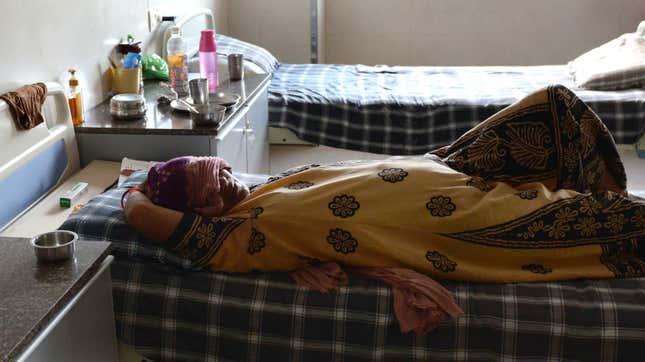The Other Crisis: Millions Worldwide Have Lost Access to Abortion and Contraceptives Due to COVID-19
Latest

While many elected officials in the United States have used the covid-19 pandemic to quietly push for anti-abortion legislation, the rest of the world suffers from a scarcity of contraception and abortion resources. The situation is dire. A new report from Marie Stopes International found that between January and June, across 37 countries, 2 million fewer women received reproductive healthcare than during the same time period the previous year. India accounts for 1.3 million of those women. (Abortions are considered essential services under India’s months-long lockdown, but most women were not informed of the clause.) The study anticipates that the lack of reproductive healthcare during this period will cause 1.5 million unsafe abortions, 900,000 unwanted pregnancies, and 3,000 deaths.
According to the AP, “lockdowns, travel restrictions, supply chain disruptions, the massive shift of health resources to combat COVID-19 and fear of infection,” are the blame for the lack of healthcare.
The International Planned Parenthood Federation found that the supply of certain kinds of contraceptives fell nearly 50% in some parts of West Africa. Teen pregnancies have grown in Kenya, too. “I’ve never seen anything like this apart from countries in conflict,” Diana Moreka, a coordinator of the MAMA Network, an activist and feminist collaborative based in Sub-Saharan Africa, told the AP. “The pandemic… has taken us many years backward.”
And many home births and deaths are likely going unreported. “I feel like right now we just have a tip of the situation,” Phonsina Archane, a coordinator of the MAMA Network said. “When lockdowns are lifted we will see things clearly. We should prepare ourselves for that time.”
Back in April, the United Nations warned that covid-19 could result in more than 47 million women losing access to contraception, leading to 7 million unplanned pregnancies, NBC News reported at the time. “The pandemic is deepening inequalities,” said Dr. Natalia Kanem, UNFPA Executive Director. “and millions more women and girls now risk losing the ability to plan their families and protect their bodies and their health.”
It may prove to be that devastating: just two weeks ago, the World Health Organization found that, in a survey of 103 countries, 67% reported disruption in family planning and contraception services. Access to reproductive care and information has hit a crisis level—in the midst of another.